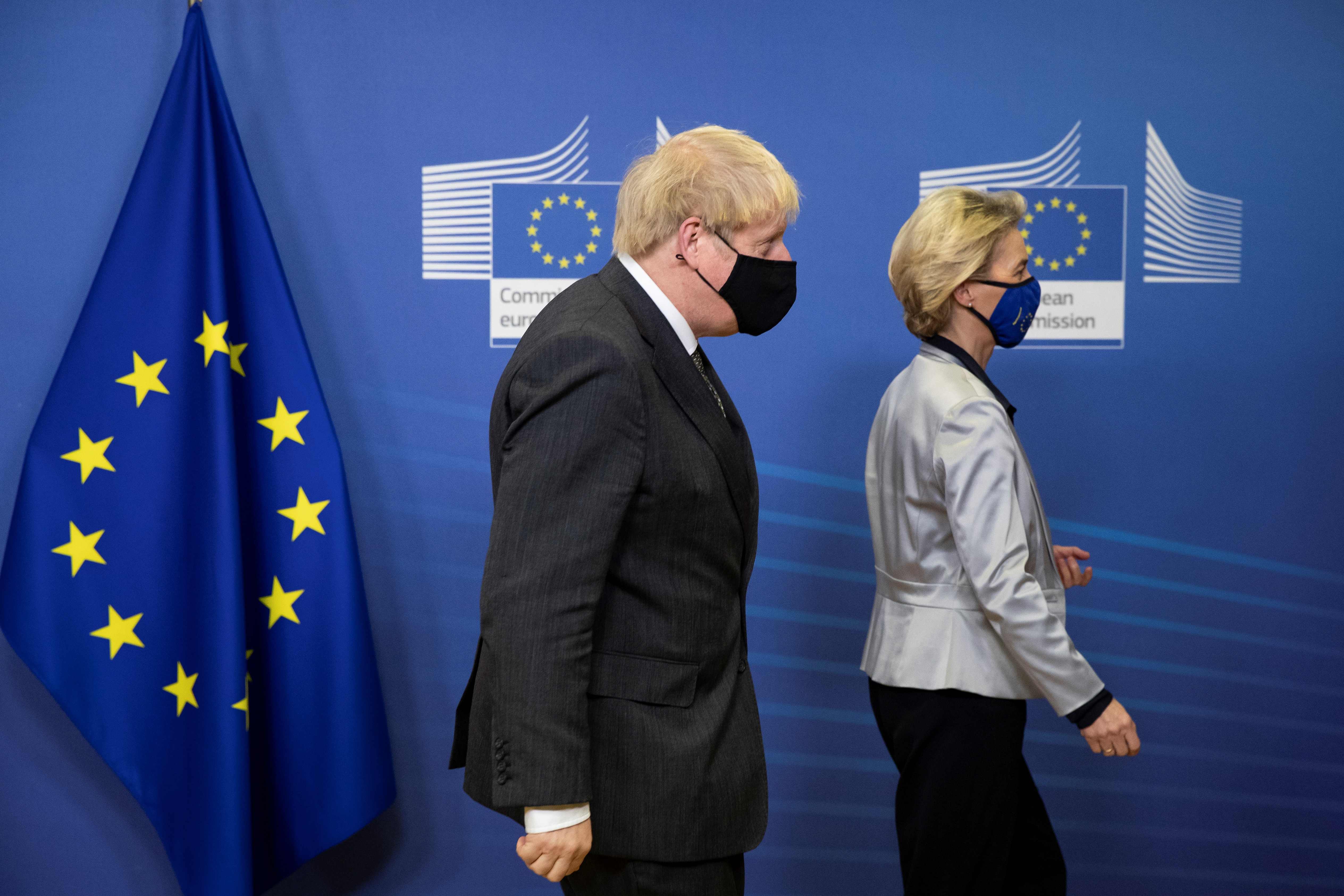The Independent revealed today that the government is telling councils to put up EU flags around public buildings and streets.
The reason for this is that local authorities are being passed cash that has ultimately come from the European Regional Development Fund.
The government’s Welcome Back Fund, a national UK scheme aimed at reopening high streets after Covid, is effectively financed by the EU.
And the fund requires whatever its cash is spent on to be festooned in EU flags to show where the money has come from.
This may seem like a confusing state of affairs. The UK left the EU back in January 2020 – and the transition period during which arrangements stayed much the same ended 11 months later on New Year’s Eve 2020.
Ministers have made much of being free from the EU’s structures. But there are a few exceptions, and a notable one is the regional development fund and its sister funds, the European Social Fund, European Territorial Cooperation programmes, and other similar schemes.
The European Regional Development Fund continues to invest in projects after the transition period ended on 31 December 2020. It can issue funding up to the end of 2023.
Covid high street cash isn’t the only thing the fund is paying for. Recent projects include youth unemployment programmes in the East Midlands, a career development programme in Yorkshire, and a mental health support programme in Sheffield.
The reason the cash runs until 2023 is that the UK took part in the EU’s seven-year budget round corresponding to 2014-2020 – this is known in EU jargon as the Multiannual Financial Framework. This was all taken into account in the Brexit financial settlement, or so-called “divorce bill”.
Confusingly, funding agreed during this budget period for European investment funds runs until 2023, so the UK continues to benefit until then. Both sides agreed that it would be wrong to pull the rug out from under projects midway through the funding round when the UK left the bloc. But it will not benefit from the next round of funding after that.
After this point, the government has promised to create a domestic alternative to the various European funds. It’s not clear exactly what it will look like yet, but the government says it will be called the UK Shared Prosperity Fund.





Join our commenting forum
Join thought-provoking conversations, follow other Independent readers and see their replies
Comments